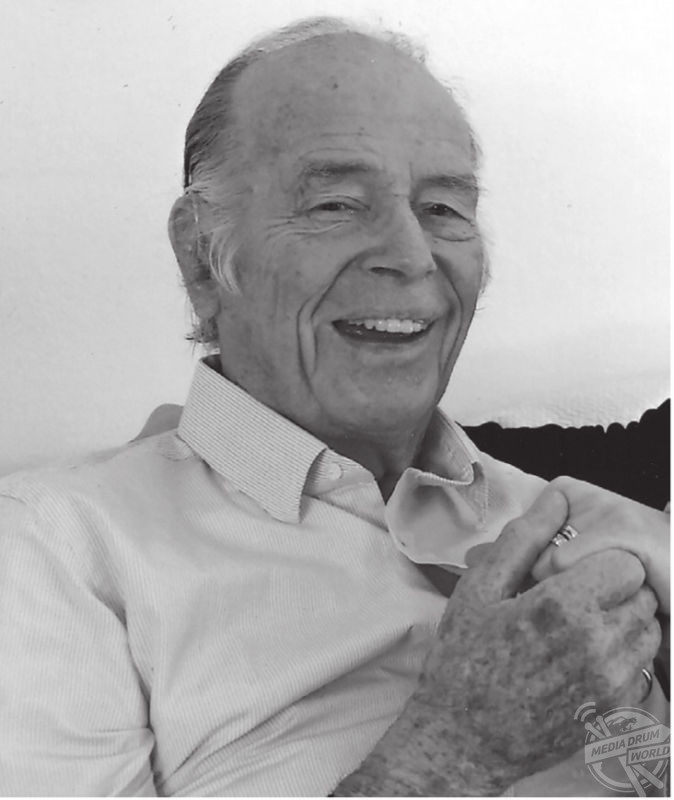By Alex Jones
THE SON of one of Hitler’s closest confidants and top-ranking Nazis has unveiled the secrets of the Third Reich’s top table and the man who kickstarted the Second World War in his explosive memoirs.
Joachim von Ribbentrop, counted amongst Hitler’s most trusted allies, was foreign minister under the Nazi regime (1933–45), and chief negotiator of the treaties with which Germany entered World War Two.
Incredible images, several of which have not been seen before, show Von Ribbentrop in deep discussion with Hitler and Mussolini; signing the treaty which paved the way for the Nazi invasion of Poland, the German-Soviet Pact of Non-Aggression; and entertaining a visibly relaxed Fuhrer in his own home.
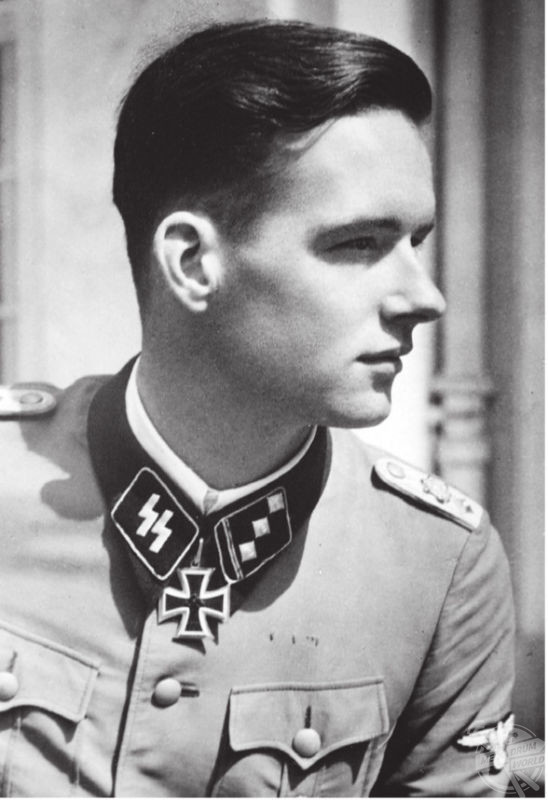
The striking photos are including in Rudolf Von Ribbentrop’s My Father Joachim von Ribbentrop, a frank description of the SS soldier’s relationship with his father when he was the German Ambassador in London and during the war years. This is the this first English Language edition of his memoirs.
A decorated Nazi soldier in his own right Rudolf Von Ribbentrop, now in his late 90s, had his own personal encounters with Hitler, including one just months before the fascist leader would take his own life in a Berlin bunker.
His chance meeting with one of the world’s most evil men came just moments after an allied bombing run had pummelled central Berlin, when the Third Reich’s defeat looked all but inevitable was causing a tremendous strain on Hitler.
“In impeccable deportment, a sentry of the Reich Chancellery invited me ‘to come to the bunker’,” remembered the author, who had narrowly avoided injury in the raid.
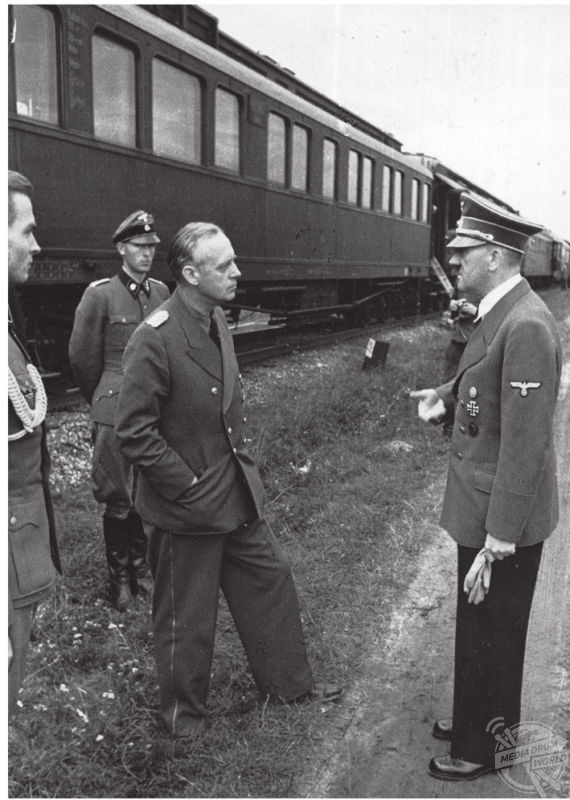
Special Train, ca. 1941. Mediadrumimages/RudolfVonRibbentrop/PenAndSwordBooks
“I followed him into the ruins of the Chancellery until, stepping through a fire door, I suddenly stood before Hitler.
“I did not even have time to present myself properly according to regulations, when he grasped my right hand with both of his – a typical gesture of Hitler’s – and appreciatively talked about my division.
“I stood there as if turned to stone, unable to say anything in reply; the impact of the sight of Hitler’s physical deterioration was too overwhelming. What had happened to the man whom on 30 April of both 1939 and 1940 – Father’s birthday – in a convivial circle, sitting at the same table, I had listened to and observed? His body was a wreck. His face was grey and puffy, his bearing bent in a way that looked as if he had a hump, holding one uncontrollably shaking hand with the other, his steps a shuffle. Only his striking blue eyes kept a certain brilliance, but without hiding an impression of great infirmity.
“We said goodbye. I had not been able to utter a single word, so shattering had been the impact of that quarter of an hour during which I stood before the man who for us soldiers represented our country and in whom we believed, despite battles that were becoming ever more cruel. For more than five years, under constantly increasing heavy loss of lives, we had fought for Germany, our country, not for Hitler. But Hitler was the personification of our country.”
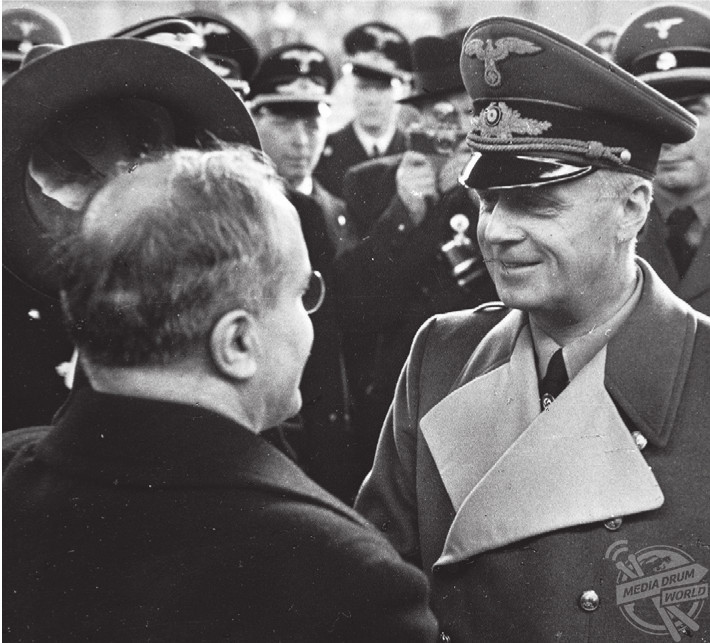
Approximately a year after Hitler’s death by his own hand, Rudolf Von Ribbentrop would also watch his own father hang after he was executed following the Nuremberg Trials, convicted on four counts including deliberately planning a war of aggression and war crimes.
The foreign minister’s son writes plainly about the court’s decision to sentence his father to death, but laments he never had the chance to say goodbye and that the court was rigged.
“Prior to the verdict, I was brought to Nuremberg for a few days and confined to a cell in the witness wing, to be able to talk to my father for about ten minutes every day through a netting, with guards on either side,” Rudolf Von Ribbentrop explained.
“Actually, we were both aware of what the verdict would be; not because Father was guilty in the court’s sense, but because the court had been so structured as to make unequivocally sure that the process taken was directed to capital punishment.
“After pronouncement of the verdict, which, as we both expected, was a death sentence, I was not given an opportunity to say goodbye to my father.
“After my visit to Nuremberg and the talks I had there, I made a note for myself of the names of the accused who, in view of the conduct of the trial, could expect a death sentence. My prediction was absolutely right.”
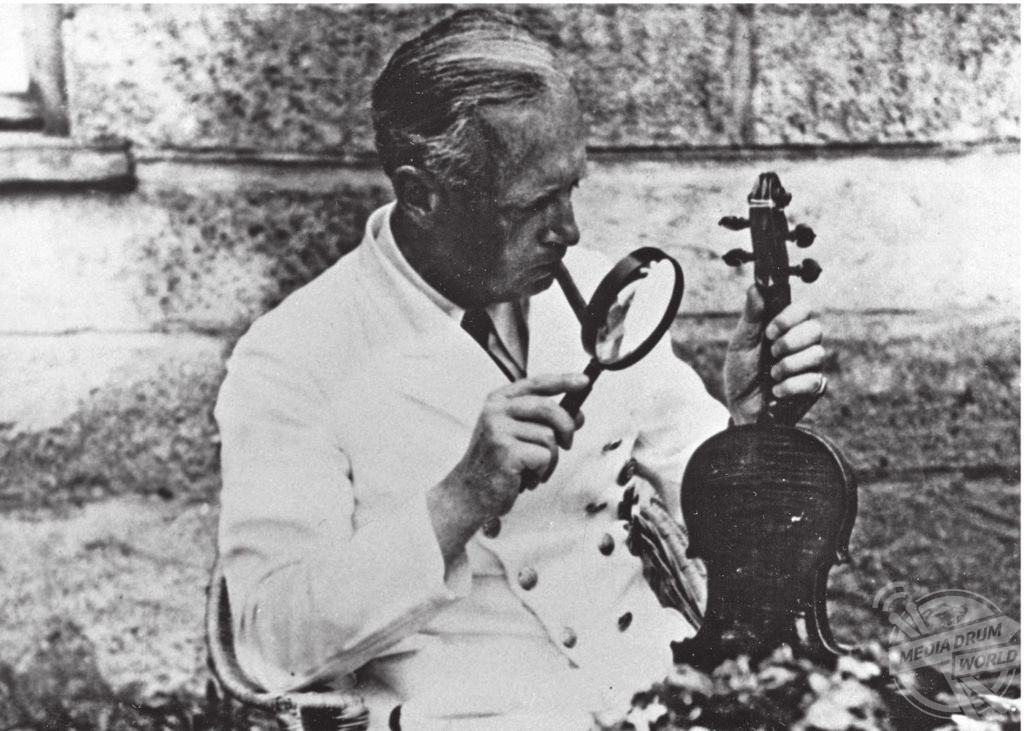
Despite Joachim Von Ribbentrop’s alleged ‘dreamy’ disposition, his son was proud of my his father’s conviction and his ability to argue with Hitler.
“If he was not ‘eliminated’, as he used to say about the probable death sentence, father wanted to write his memoirs,” continued Rudolf Von Ribbentrop.
“I asked him if he did so expressly to bring out his divergences of view from Hitler’s. My main thought about this was of his efforts to avert the war with the Soviet Union.
“However, during the trial, father had consciously refused to expose his disparities with Hitler before the tribunal of the victors.
“In one of his last letters to Mother (dated 5 October 1946) he wrote:
‘I did not want at this trial to speak about my grave disputes with Adolf Hitler. The German people would then rightly say: “What sort of a man is that who was Adolf Hitler’s Foreign Minister and now turns against him for selfish reasons, before a foreign law court?” You must understand this, however hard it is for us both and the children. But without the respect of decent Germans and above all without self-respect I could not have gone on living nor wanted to live.’
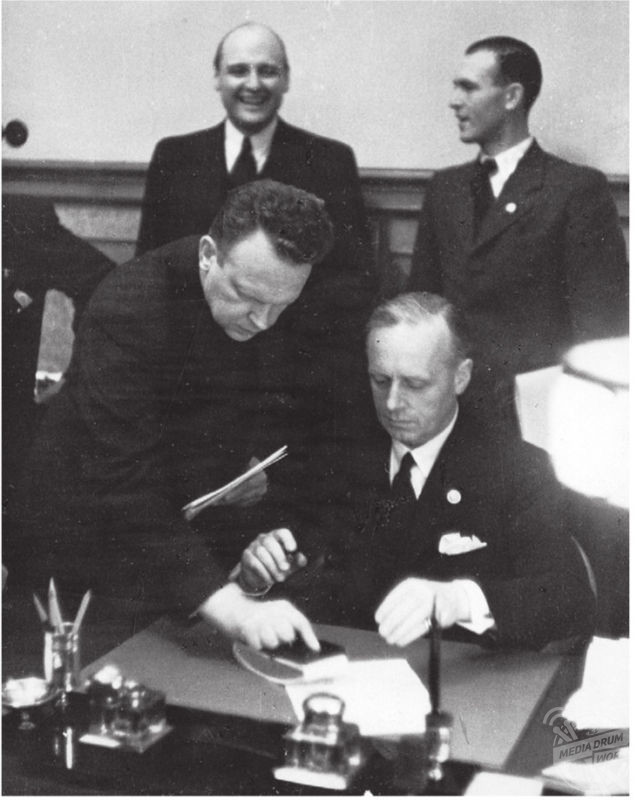
“Today I am grateful that in his defence Father did not take the ‘low road’ against Hitler.
“When we talked he regretted the generally spineless attitude that had been noticeable at Nuremberg. Father and I had brief chats with great warmth of feeling, which we both kept free of tension, conscious as we were of submitting to an ineluctable fate.”
The story of the Joachim Von Ribbentrop before his death is undoubtedly an interesting one. He was an often isolated figure among the Nazi elite, and was occasionally scorned as ‘absent-minded and odd’. In his final report from London, where he acted as ambassador, Von Ribbentrop informed Hitler that he was convinced that Great Britain would fight for its position in the world, information that Hitler took too lightly and would ultimately prove his undoing.
Von Ribbentrop went on to play a key role forging the short-lived pact with Stalin’s Soviet Union which paved the way for the attacks on Poland in 1939, and hence the start of the Second World War.
Far from being uncritical, Rudolf Von Ribbentrop sets out to paint an objective picture of his Father’s role. His unique position throws fascinating light on the unfolding dramatic events leading up to, and then the execution of, the Second World War. Within his book, Rudolf Von Ribbentrop briefly describes his personal experiences including his war service with the SS but it is his unique perspective into the upper echelons of the Third Reich decision-making process that draws the reader in.
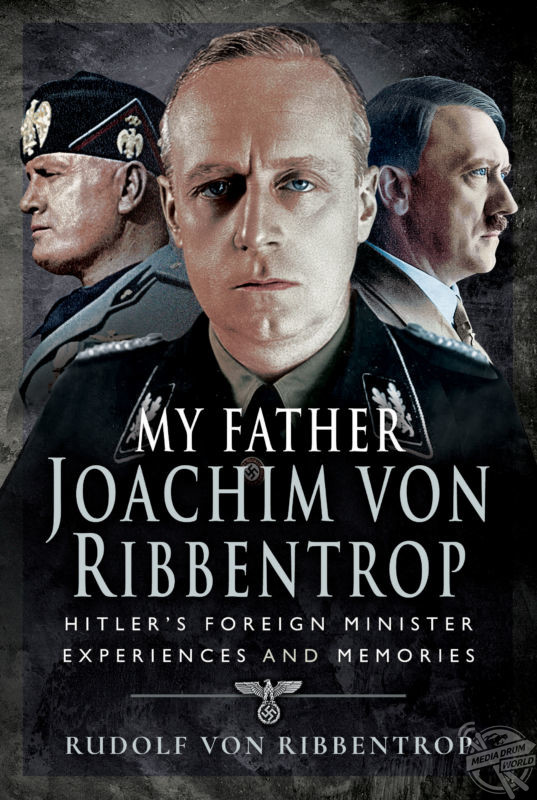
Explaining his decision to compose his memoirs, which were released in Germany several years ago, which were often painful to recall, Rudolf Von Ribbentrop said:
“It was seeking an answer to the question – of desperation – ‘How could it have come to that?’ In the face of a defeated Hitler that finally incited me to put pen to paper about what I remembered, what I knew and had experienced in the years from 1933 to 1945.
“What were the exceptional circumstances that granted me the licence to chronicle those times which I lived through at first hand, as a child and as a young man, between the ages of 11 and 24, in what I may claim to have been the true sense of the word ‘intimately’?
“It was the era of German history known variously as the Third Reich, the Thousand Year Reich or ‘Hitler’s Germany’ that turned out to be so traumatic for the German people that as a consequence these days the subject is taboo, insofar as an objective analysis – of foreign policy at least – is concerned.
“For the reader to judge whether or not I have the legitimate right to express my views, let me use the English saying: ‘Take it or leave it!’”
Rudolf Von Ribbentrop’s My Father Joachim von Ribbentrop, published in English for the first time by Pen And Sword Books, is available here.

